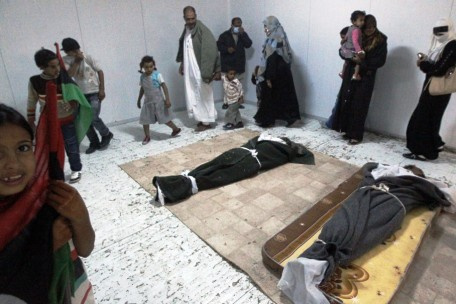Mission Accomplished: Qaddafi Killed; the Safe Sealed

By: Sadeq Kharrazi
The Libyan Revolution is a political drama in contemporary Muslim and Arab World history that cannot be easily ignored. With its particular characteristics, post-Qaddafi Libya has attracted the world’s attention.
The murder of Qaddafi at the hands of the revolutionary forces leaves many questions unanswered. With his death, a valuable source of information that could affect the European countries’ elections and the businesses of the major American and European financial and oil companies went up in smoke.
After a tradeoff over the Lockerbie bombing and generously dispatching his imported second-hand uranium-enriching machinery, Qaddafi’s name was removed from West’s list of persona non grata. From Tony Blair to Berlusconi and Chirac, the world’s high-ranking officials lined up to visit Tripoli. Thousands of oil experts and technicians flooded Libya, monopolizing the energy sector.
How did Qaddafi’s fate unfold in this bizarre fashion? Intelligence reveals that France and NATO had spotted Qaddafi in the early morning of the day of his death, and the first attack on the Libyan dictator and his associates was carried out by French forces. It is evident that NATO’s forces played the key role in his murder to erase any existing, living documents concerning the connection between Tripoli and the West.
The second question is how can those West-proclaimed champions of freedom establish democracy in Libya when they themselves kill without a trial. Restoring stability in the short run and founding a stable regime defy the reality.
Libya is on the threshold of serious tribal, civil and domestic conflicts that could lead to its disintegration. Although sectarian strife does not threaten the country, the tribal composition of Libyan society will deeply influence the future power relations in the country.
What excuse can the transitional government of Libya offer for disposing of the most important evidence of Libya’s relations with the international community? Qaddafi, the blemish on the face of Libya, harbored a consequential load of intelligence-- with a 42-year span.
We are going to face unexpected turns in Libya. For their own sakes, the country’s officials should comprehend and appreciate the direness of the situation.

